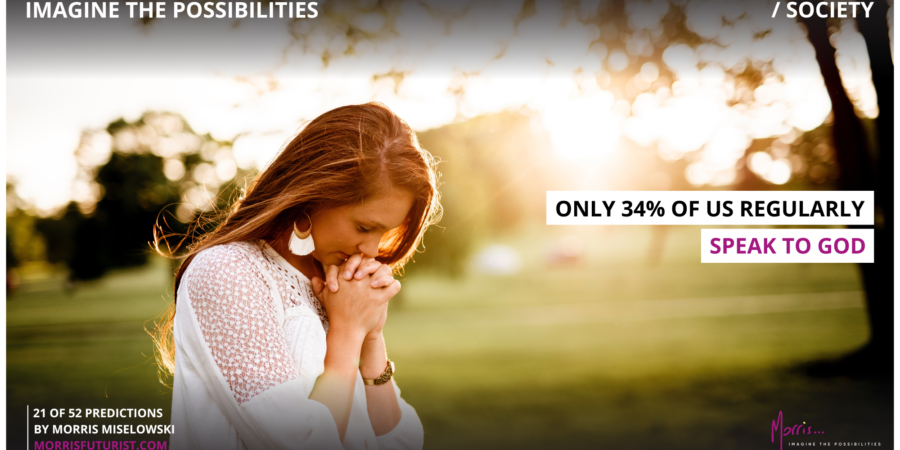Australia’s Evolving Faithscape: A Business Futurist’s Guide to Values, Diversity, and Social Impact
Australians are cracking open Easter eggs 
Yet, the landscape of faith in Australia is undergoing a fascinating transformation.
While Christianity remains the dominant religion (43.9% identifying as Christian in the 2021 census), the percentage has seen a significant decline from over 60% just a decade ago.
This decline is mirrored by a rise in those identifying with “no religion” (38.9%). However, the story doesn’t end there. Australia’s religious tapestry is rich and diverse.
Here’s a breakdown of the major religious affiliations according to the 2021 census:
- Christianity (43.9%)
- No Religion (38.9%)
- Islam (3.2%)
- Hinduism (2.7%)
- Buddhism (2.4%)
- Sikhism (0.8%)
- Other Faiths (0.5%)
- Judaism (0.4%)
This shift in religious affiliation presents a compelling question for business futurists: how will Australia’s evolving faithscape impact business strategies and future-oriented thinking?
This exploration delves into the implications for businesses, offering practical advice on how to adapt and thrive in a nation with a changing religious identity.
A Nation in Flux: Understanding Australia’s Religious Landscape
Australia’s religious tapestry is rich and diverse.
Historically, Christianity held a powerful presence. However, recent decades have witnessed a decline, particularly in traditional denominations like Catholicism and Anglicanism.
This shift can be attributed to several factors, including:
- Secularisation: As societies become more prosperous and technologically advanced, religious adherence often declines.
- Immigration: Australia’s vibrant multicultural population has brought a wider range of faiths, with Islam and Buddhism experiencing growth.
- Social Change: Issues like same-sex marriage, once fiercely debated on religious grounds, are now gaining wider acceptance, reflecting an evolving moral compass.
Beyond Demographics: The Values Shift Reshaping Business
The decline in traditional religious affiliation doesn’t equate to a decline in values.
In fact, we are witnessing a values shift!
Consumers are increasingly drawn to brands that demonstrably align with their core values.
This includes:
- Social Conscience: Businesses that demonstrate a commitment to social good, environmental sustainability, and ethical practices resonate more with customers.
- Inclusivity: Diversity is a strength. Businesses fostering inclusive work environments that celebrate differences will attract top talent and a wider customer base.
- Transparency and Authenticity: Consumers crave genuine connections with brands. Transparency in business practices and a commitment to authenticity are key differentiators.
These evolving values present a strategic opportunity for future-oriented businesses.
Here’s how to incorporate them into your business strategy:
- Define Your Purpose Beyond Profit:
- What impact does your business want to make in the world?
- How can your products/services contribute to a better future?
- Clearly articulate your purpose and weave it into everything you do – from marketing to employee engagement.
- Foster a Culture of Diversity and Inclusion:
- Create a workplace that welcomes and celebrates people from all backgrounds and faiths.
- Offer flexible work arrangements to accommodate diverse religious holidays and practices.
- Educate your workforce on cultural sensitivities and unconscious bias.
- Stay Informed and Adapt:
- Regularly monitor social trends and the evolving values landscape.
- Update your policies and practices to reflect changing societal norms.
- Engage in open dialogue with your employees and customers to understand their perspectives.
- Partner with Organisations that Align with Your Values:
- Collaborate with charities or NGOs that share your commitment to social good.
- These partnerships can enhance your brand reputation and attract purpose-driven consumers.
- Invest in social impact initiatives that truly make a difference.
- Leverage Storytelling:
- Human beings connect through stories.
- Share stories about your commitment to social impact, diversity, and ethical practices.
- Use storytelling to connect with your audience on an emotional level.
Case Studies: Businesses Embracing the Values Shift
Several Australian companies are already embracing the values shift, reaping both social and financial rewards:
- ANZ Bank: Launched a “Pride in Our People” campaign celebrating diversity and inclusion.
- REA Group: Championed flexible work arrangements to cater to diverse needs.
- Who Gives a Crap: Toilet paper company built on a social mission, donating 50% of profits to sanitation projects.
These examples showcase the power of aligning business goals with evolving social values.
Looking Ahead: The Future of Faith and Business in Australia
The decline in traditional religious affiliation doesn’t signify a decline in spirituality.
Instead, it reflects a shift towards a more individualized approach to meaning and purpose.
This trend presents a unique opportunity for businesses to engage with customers and employees based on shared values, not religious dogma.
By prioritising social conscience, diversity, and ethical practices, businesses can establish authentic connections with consumers and build a resilient future in an evolving faithscape.
Here are some additional points to consider for future thinking:
The Rise of Secular Spiritualities: Mindfulness, meditation and beyond
The decline of traditional religion doesn’t negate the human desire for meaning and spiritual fulfillment.
Enter the fascinating phenomenon of secular spiritualities.
These practices offer a sense of inner peace, connection, and purpose, independent of religious dogma.
Mindfulness meditation, with its focus on present-moment awareness and non-judgmental observation, is a prime example.
What does this burgeoning trend of secular spiritualities mean for businesses?
- Catering to Employee Wellbeing: Offer meditation or mindfulness workshops to promote employee wellbeing and reduce stress.
- Creating a Culture of Mindfulness: Encourage mindful communication and collaboration practices within your team.
- Connecting with Value-Driven Customers: Many consumers seek brands that promote personal growth and well-being. Tap into this by offering products or services that align with these values.
Beyond Mindfulness: The Evolving Landscape of Secular Spiritualities
Mindfulness is just the tip of the iceberg. The future of secular spiritualities may encompass a diverse range of practices:
- Nature-Based Practices: Spending time in nature has been shown to improve mental and emotional well-being. Consider offering eco-retreats or wellness programs that incorporate nature connection.
- Community and Connection: Humans are social creatures who thrive on connection. Businesses can foster a sense of community by creating collaborative workspaces or organizing social events.
- Meaningful Work: For many, work provides a sense of purpose and fulfillment. Businesses can prioritise creating meaningful work experiences for employees, aligning tasks with individual values and goals.
A Final Word: Building a Future-Proof Business
As Australia’s faithscape continues to evolve, businesses that embrace a values-centric approach will be well-positioned for success.
By fostering a culture of diversity, social responsibility, and ethical practices, businesses can attract top talent, build loyal customer bases, and contribute to a more prosperous and sustainable future for all Australians.
This isn’t just about adapting to change – it’s about harnessing it as an opportunity for growth and positive impact.
Let’s continue the conversation! Share your thoughts and experiences in the comments below. How is your business adapting to Australia’s evolving religious landscape?
#Australia #Business #FutureOfWork #Religion #Diversity #SocialImpact #Values #Mindfulness #SecularSpirituality #Wellbeing


